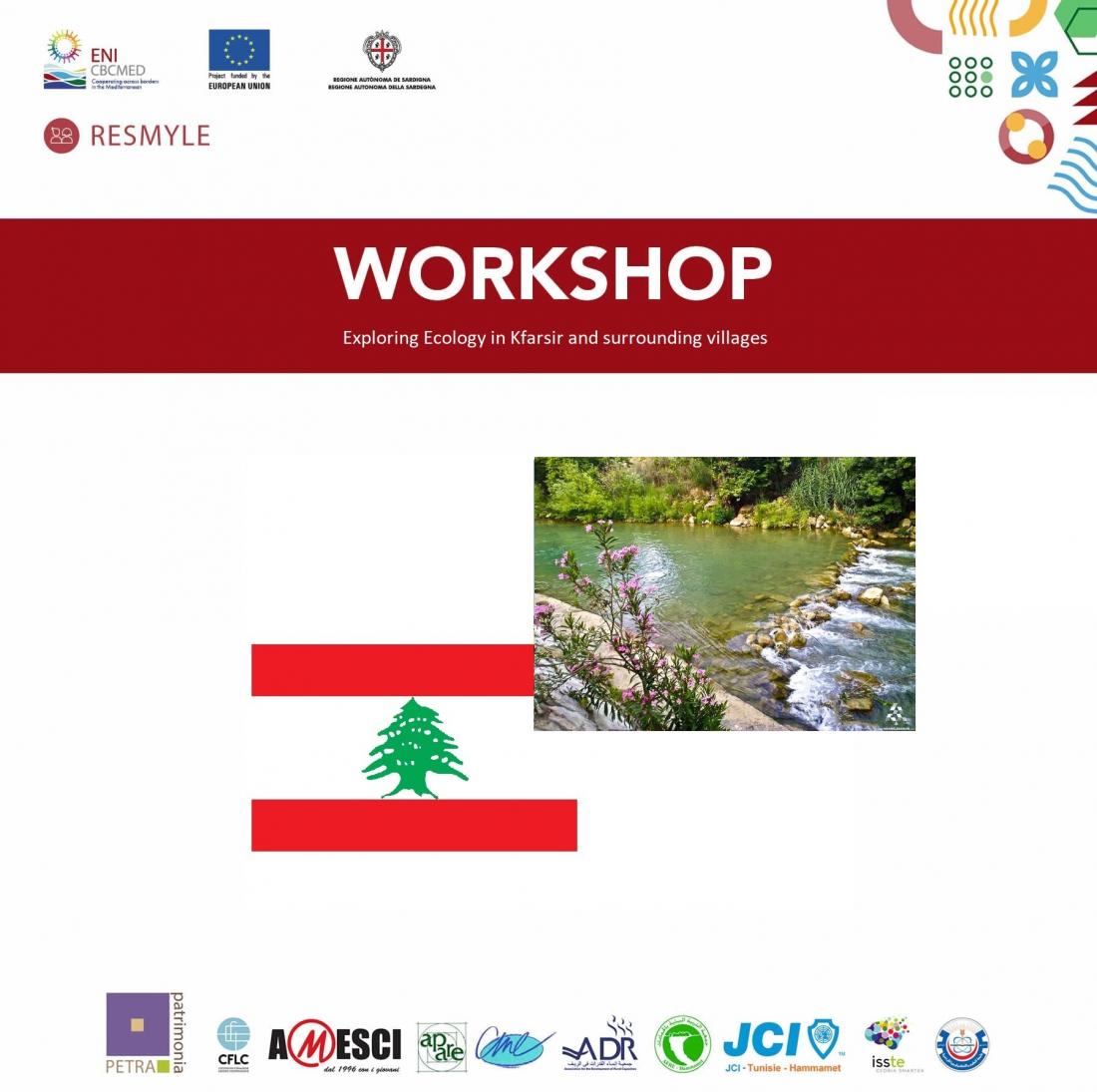RESMYLE in Lebanon invites you to participate in a new workshop on Ecology!

The Association for Rural Capacity Development (ADR), partner of RESMYLE project, is organising a practical field training workshop from 8 to 21 March 2022 to explore ecology in Kfarsir and surrounding villages in partnership with the Municipality of Tyr Caza and the Nokta Fasle association promoting local development and raising community awareness of sustainable development goals.
The objective of the workshop is to explore the ecology of Kfarsir and the surrounding villages: identification of the components of the ecology, ecosystems, habitats, and the importance of biodiversity within them, as well as the identification of the main pressures.
After exploring the ecology of the area, the participants will work on preparing materials to raise awareness of this topic among the students of these villages.
Indeed, the Litani River is an important water resource in southern Lebanon. It rises in the fertile Beqaa Valley, west of Baalbek, and flows into the Mediterranean Sea north of Tyre. At over 140 km in length, the Litani is the longest river in Lebanon and provides an estimated average annual flow of 920 million cubic metres. The waters of the Litani originate and flow entirely within the borders of Lebanon. It is a major source of water supply, irrigation and hydroelectricity, both in southern Lebanon and throughout the country. The village of Kfarsir, where the workshop will take place, and the surrounding villages are located on the borders of the Litani River and possess important riverine ecosystems and rich biodiversity: freshwater biodiversity, wetland biodiversity, etc.
Despite the importance of the environment, the region is unfortunately exposed to a number of pressures due to human activities in the area, resulting in water pollution and water quality. The workshop will engage the municipalities in identifying the main pressures on the Litani River and the surrounding ecosystem, in particular wastewater from a number of villages which is one of the main hazards.
The workshop addresses one of the most important environmental issues facing Lebanon, namely the fact that the Litani River is one of the main sources of water for the population of this region.
Participants will conduct interviews with the municipalities surrounding the Litani River in the target area to identify the pressure on this important environmental resource. They will also carry out fieldwork to identify the ecological components. Participants will experience working in groups and will work with local authorities and local communities. They will gain experience in communication in addition to technical experience.
An expert will intervene throughout the workshop at key points to provide food for thought, to respond to participants' expectations and questions, and to ensure that the workshop is also a learning-by-doing opportunity for the young participants.
The workshop participants will be able to acquire the following skills
- Introduction to the Sustainable Development Goals and ecological themes
- Identification of the components of ecology and biodiversity
- Familiarity with the preparation of awareness-raising materials
- Event organisation and communication (public speaking)
- Group work, time management and dealing with possible conflicts, etc.
The workshop is open to young people between 16 and 30 years old, not in education, training or employment (NEETs). The working language will be English and Arabic (translation provided).
To find out more about this workshop, click here.
Registration:
- Lebanese participants can fill in this form
- Other participants (France, Italy, Jordan and Tunisia) can fill in this form.
Other workshops are implemented in the framework of the RESMYLE project, find all information here.
If you need more information, you can contact Hiba Fawaz, RESMYLE project manager in Lebanon via this email: hiba.fawaz@adr.org.lb
RESMYLE project - Rethinking employment and social inclusion of Mediterranean youth through sustainable development is funded by the European Union's ENI CBC MED programme.
Follow us on our social networks (Facebook, Twitter, Instagram) for more information on coming activities!







